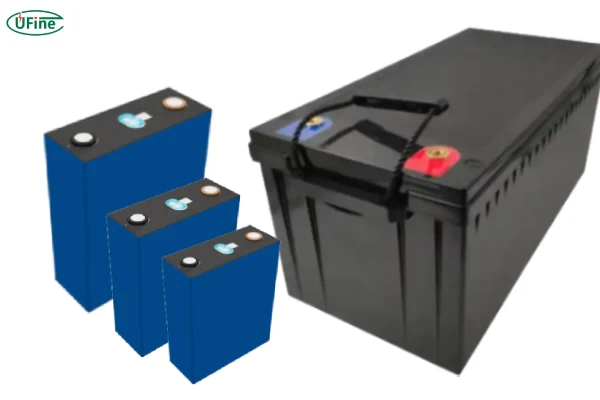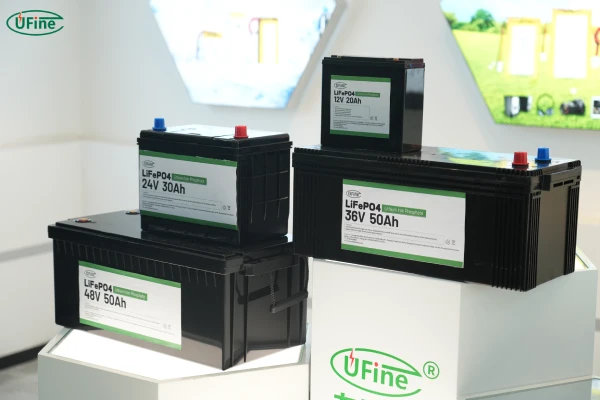Part 1. Understanding the 12V 9Ah battery

The 12V 9Ah battery is one of the most commonly used batteries in the world, thanks to its versatility and reliability. But what does “12V 9Ah” really mean? Let’s break it down.
- 12V (Volts): This indicates the battery’s nominal voltage. In simple terms, it tells you the battery can provide 12 volts of electrical pressure. It’s the standard for many devices, from UPS systems to scooters.
- 9Ah (Ampere-hours): This measures the battery’s capacity. A 9Ah battery can deliver 9 amps for an hour or 1 amp for 9 hours. Essentially, it tells you how long the battery can last under certain conditions.
Key Characteristics
- Compact and Portable: Despite its power, the battery is designed to be small enough to fit into various devices.
- Reliable Power Output: Known for delivering consistent performance over time.
- Widely Available: You’ll find these batteries in numerous markets and applications.
Part 2. Types of 12V 9Ah battery
Not all 12V 9Ah batteries are created equal. Their chemical composition determines their performance, weight, and longevity. Here’s a closer look at the main types:
1. Lead-Acid Batteries
- Flooded Lead-Acid: These are traditional car batteries. They require maintenance, like adding distilled water periodically.
- Sealed Lead-Acid (SLA): These are spill-proof and maintenance-free, making them ideal for applications like UPS systems and emergency lighting.
- Advantages: Affordable, easy to find, and robust.
- Disadvantages: Heavy and less efficient compared to modern technologies.
2. Lithium-Ion Batteries
- Lightweight and efficient, these batteries pack a lot of energy into a small size.
- Advantages: Long cycle life, quick charging, and high energy density.
- Disadvantages: Expensive and sensitive to extreme temperatures.
3. LiFePO4 (Lithium Iron Phosphate) Batteries
- The safest and most durable option among 12V 9Ah batteries.
- Advantages: Exceptional safety, long lifespan, and environmental friendliness.
- Disadvantages: Higher upfront cost but better value in the long run.
Each type has its own strengths and weaknesses. Choosing the right one depends on your specific needs.
Part 3. Sizes
Battery size is crucial, especially if you’re replacing an old battery or working with devices with limited space. While dimensions can vary slightly by manufacturer, the most common size for a 12V 9Ah battery is:
- Length: 5.9 inches (151mm)
- Width: 2.6 inches (65mm)
- Height: 3.7 inches (94mm)
Make sure to measure your device’s battery compartment before purchasing. Even a small mismatch in size could create problems during installation.
Part 4. Is the 12V 9Ah LiFePO4 battery the best?
If we’re talking about performance, safety, and longevity, the LiFePO4 battery is often considered the best option. Here’s why:
- Longevity: It can last up to 5,000 cycles, which is far superior to lead-acid batteries.
- Safety: LiFePO4 batteries are incredibly stable and resistant to overheating.
- Lightweight: Easier to handle and install compared to lead-acid alternatives.
- Eco-Friendly: Contains no harmful heavy metals like lead or cadmium.
However, there’s no one-size-fits-all answer. If you’re on a tight budget or only need a battery for short-term use, sealed lead-acid batteries might make more sense.
Part 5. How many cells does a 12V 9Ah LiFePO4 battery have?
A 12V LiFePO4 battery typically consists of 4 cells connected in series. Each cell provides about 3.2 volts, and together, they achieve a nominal voltage of 12.8V.
Why is this configuration important?
- Balanced Energy Output: This design ensures consistent power delivery.
- Enhanced Safety: LiFePO4 cells are less prone to overheating or catching fire, unlike other lithium-based batteries.
- Efficient Design: The 4-cell configuration allows the battery to remain compact yet powerful.
Part 6. How long does a 12V 9Ah battery last?
Battery lifespan depends on several factors, including type and usage:
- Lead-Acid Batteries: Last around 300–500 cycles or 2–3 years with normal use.
- LiFePO4 Batteries: Offer an impressive lifespan of 2,000–5,000 cycles, translating to 5–10 years or more.
Factors That Affect Battery Life:
- Depth of Discharge: Frequently draining the battery completely can shorten its life.
- Operating Temperature: High heat can degrade the battery faster.
- Maintenance: Proper care, like using the right charger, can extend lifespan.
Part 7. Where is the 12V 9Ah battery used?
The versatility of 12V 9Ah batteries means you’ll find them in various applications:
- Uninterruptible Power Supplies (UPS): Keeps essential electronics running during power outages.
- Electric Vehicles: Powers scooters, bikes, and small mobility devices.
- Emergency Lighting: Ensures lights stay on during blackouts.
- Medical Equipment: Provides reliable power for life-saving devices.
- Solar Systems: Stores energy for off-grid or backup use.
Its compact size and reliable performance make it a go-to choice in many industries.
Part 8. Price
The price of a 12V 9Ah battery depends on its type:
- Sealed Lead-Acid: $20–$50
- Lithium-Ion: $50–$100
- LiFePO4: $80–$150
While lead-acid options are cheaper, lithium-based batteries offer better long-term value thanks to their extended lifespan and reduced maintenance costs.
Part 9. Charger
Charging a battery correctly is vital for its health and performance. Here are the common types of chargers:
- Standard Chargers: Designed for lead-acid batteries, often with basic overcharge protection.
- LiFePO4 Chargers: Tailored to the unique needs of LiFePO4 batteries, ensuring balanced charging.
- Smart Chargers: Automatically detect battery type and adjust voltage and current for optimal charging.
Always use a charger compatible with your battery type to prevent damage.
Part 10. How to choose the right 12V 9Ah battery?
Choosing the right battery can feel overwhelming, but here are some key tips:
- Know Your Application: Identify the device or system you need the battery for.
- Prioritize Longevity: If you need a long-term solution, opt for LiFePO4.
- Consider Weight: Lithium-based batteries are lighter, which is ideal for portable applications.
- Check Compatibility: Ensure the size and terminals fit your device.
- Stick to Reputable Brands: Quality and warranty matter when investing in batteries.
Part 11. Conclusion
The 12V 9Ah battery is a versatile and essential power source for countless applications. From lead-acid to LiFePO4, each type offers unique benefits to suit different needs. Whether you’re looking for affordability, performance, or safety, understanding the differences will help you make the best choice.
Take your time to evaluate your needs and invest in a battery that will power your devices reliably for years to come.
Related Tags:
More Articles

How to Choose the Best Floor Scrubber Battery for Commercial Cleaning?
Selecting the ideal floor scrubber battery ensures a long runtime, rapid charging, and minimal maintenance for efficient commercial cleaning operations.
Battery for Blower vs Battery for Leaf Vacuum: Which One Should You Choose?
Battery for blower vs leaf vacuum—learn the key differences in power, fit, and runtime to choose the right battery for your outdoor tool needs.
How to Choose the Right Battery for Blower?
Choosing the right blower battery? Consider voltage, capacity, chemistry & usage. This guide helps match the best battery for peak performance.
How to Choose the Best Insulated Battery Box for Lithium Batteries?
Choosing the Best Insulated Battery Box for Lithium Batteries? Discover key factors such as size, material, and safety for optimal protection and performance.
7 Critical Elements on a Lithium Battery Shipping Label
What must be on a lithium battery shipping label? Learn 7 key elements to ensure safety, legal compliance, and correct handling across all transport modes.




